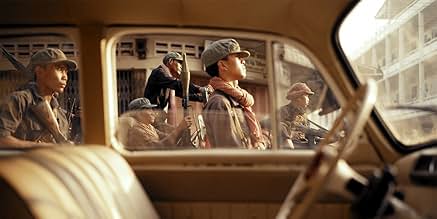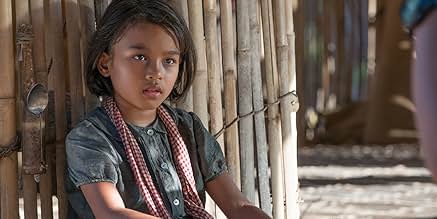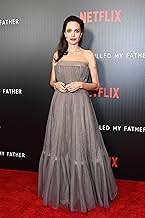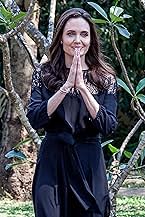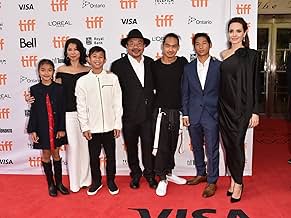Loung Ung, escritora y activista de derechos humanos camboyana, relata los horrores que sufrió cuando era niña durante un mortífero gobiernoLoung Ung, escritora y activista de derechos humanos camboyana, relata los horrores que sufrió cuando era niña durante un mortífero gobiernoLoung Ung, escritora y activista de derechos humanos camboyana, relata los horrores que sufrió cuando era niña durante un mortífero gobierno
- Dirección
- Guionistas
- Elenco
- Nominada a1 premio BAFTA
- 9 premios ganados y 29 nominaciones en total
- Self
- (material de archivo)
- Self
- (material de archivo)
Opiniones destacadas
Scenes of family survival and the horrors of war hold up well and should be of delight to anyone interested in the politics that engulfed South East Asia during the 1970's.
The dialogue in the movie is very basic but I'm left to wonder whether that was the intention as the story is from a small child's perspective trying to make sense of her surroundings.
There is very little in character development or details on what is actually happening politically in the movie in most scenes.
I would recommend people read into the Khmer Rouge before watching as it would make a more enjoyable movie experience, paying particular attention as the why Western Allied Nations supported such a brutal regime after the fall of Vietnam to the Communists.
God bless to all those in Cambodia that lived and died through this troubled time, great movie and certainly brought regular tears to my eyes.
¿Sabías que…?
- TriviaAlmost all Cambodian artists, actors and film professionals were killed during the Khmer Rouge regime and only a few of the directors were able to flee the country. The history of the birth and destruction of Cambodian cinema is covered in the documentary Le sommeil d'or (2011) from the first Cambodian film made in 1960 to the arrival of the Khmer Rouge in 1975. In these 15 years, about 400 films were produced, but only 30 films survived. With a few of the survivors telling their stories, the documentary tries to bring back to life the myths and legends of this lost cinema. Most of the old movie theaters of Phnom Penh have now become restaurants, karaoke places or squats.
- ErroresFrom 1975 to 1979, people had only skin cover their bone due to heavily overwork and starvation. Most of the scenes from movie show people still healthy with no lack of food or nutrient.
- Citas
[first lines]
Richard Nixon: [on broadcast TV] Cambodia, a small country of 7 million people, has been a neutral nation since the Geneva agreement of 1954. American policy since then has been to scrupulously respect the neutrality of the Cambodian people.
British Reporter: [standing with troops] The Vietnamese armies on the south side of the river appear to be indifferent to the contest.
Cambodian Politician: Under the pretext that there is a war necessity, they come into Cambodia.
Field Reporter: Are you glad to be in Cambodia?
Soldier: Negative. No.
Radio Reporter: The principle casualties appear to be innocent Cambodians.
Henry Kissinger: [at podium] ... the occasional difficulties in reaching a final solution.
Richard Nixon: What we are doing is to help the Cambodians help themselves. This is *not* an invasion of Cambodia.
French Reporter: The Nixon Doctrine for Southeast Asia appears to have failed. The war that began in Vietnam has now engulfed Cambodia. There is anger and frustration at the US bombings. Thousands of lives lost. Farms and livelihoods destroyed.
- ConexionesFeatured in The 75th Annual Golden Globe Awards (2018)
Selecciones populares
- How long is First They Killed My Father?Con tecnología de Alexa
Detalles
- Fecha de lanzamiento
- Países de origen
- Sitio oficial
- Idiomas
- También se conoce como
- First They Killed My Father: A Daughter of Cambodia Remembers
- Locaciones de filmación
- Productoras
- Ver más créditos de la compañía en IMDbPro
Taquilla
- Presupuesto
- USD 24,000,000 (estimado)
- Tiempo de ejecución2 horas 16 minutos
- Color
- Mezcla de sonido
- Relación de aspecto
- 1.85 : 1
Contribuir a esta página




